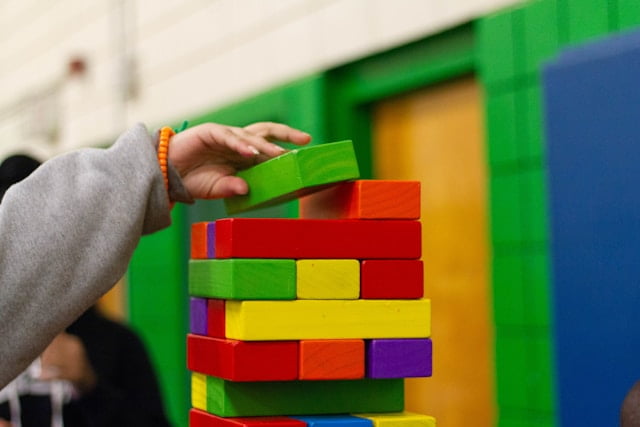Most countries currently measure performance and growth through their Gross Domestic Product (GDP). While useful, GDP provides limited insight into happiness and wellbeing of people. As a result, some countries are trialing new measures of national success that consider these factors.
Summary by The World of Work Project
Wellbeing
Wellbeing can be defined as a state of feeling healthy and happy. As a concept, it brings together both physical and mental wellness. It also has connotations of peacefulness, contentedness, harmony, connectedness and a lack of negativity or disruption.
Wellbeing at a National Level
How important is wellbeing at a national level though? Is wellbeing something that’s taken into consideration when nations and societies measure their progress? Is it considered when they decide on how to invest their resources at a policy level? The answer is yes, and no.
Measuring National Success
National success, both in terms of achievement and growth, is typically measured through a nation’s Gross Domestic Product (GDP). GDP is simply a measure of the sum of all the goods and services produced in a country.
This is essentially a measure of all the things that are produced and which are also transacted. A standard formula for calculating GDP is C + I + G + (X – M). In this formula GDP is deemed to be equal to all the personal Consumption in the economy, plus all business Investment, plus all Government spending, plus the value of eXports less the value of iMports.
While GDP is a useful measure, it also has drawbacks, or simply fails to account for certain things. For example, GDP doesn’t include recognition of things like caring for family members, unless that services is paid for.
What this means is that if I provide care for my parents, and my neighbor provides care for their parents, then neither of us are contributing to GDP. If, however, I pay my neighbor $100 to provide care for my parents and she in turn pays me $100 to provide care for her parents, then we are collectively contributing $200 to “the economy”. Though nothing has materially changed between these two examples, these two scenarios have different implications for our measured national wealth.
Alternative Measures of National Success
So where does happiness and wellbeing come into measures of national success? Perhaps there are some indications that GDP correlates with increased wellbeing and happiness, or that GDP per person does. It’s certainly the case that changes in wealth below certain levels material change the quality of life for individuals.
However, GDP may not accurately capture sufficient information to allow assessment of wellbeing and happiness. In addition, there are several factors that have a greater impact on wellbeing and happiness than wealth. For example, positive mental health and good relationships with others are typically more positively correlated with happiness. In fact they correlate more strongly with happiness than income does.
From a policy perspective, this might imply that governments could improve the overall happiness of their countries by focusing on mental health as opposed to wealth creation. Of course, nothing is ever quite that simple.
Given these challenges, though, there have been some efforts to introduce new measures of national success which are focused more on wellbeing and happiness. There’s no standardization in relation to these measures, but there is increased interest in them. The UN have included “good health and wellbeing” as one of their 17 sustainable development goals. Other interesting examples of efforts to identify new ways to measure national success through this lens include Bhutan’s “Gross National Happiness” measure and the Canadian “Index of Wellbeing”.
Whatever political direction your government is heading in, there is almost certainly an effort to broaden the factors that are considered when formulating policy decisions to include measures of wellbeing and happiness.
Learning More
Wellbeing is a really important factor in our personal lives and our work lives. It’s also something worth considering wellbeing at a national level. Some might say there is little more important than it. Certainly some of the worlds larger goals, like the UN’s Sustainable Development Goals, focus on improving humanity’s wellbeing.
There are steps we can take to improve our wellbeing. Improving our resilience and self-awareness might also help us improve our wellbeing. Similarly, learning about different types of stress and how to manage stress can be helpful.
We have lots of helpful and interesting podcasts that you might enjoy listening to as well, including the below one on Employee Wellbeing:
The World of Work Project View
We’re not experts in policy, nor in economics (though we do though both have economics degrees). We do, though, think that GDP on its own appears to be a fairly unhelpful measure of national progress and achievement.
We know that most decision making and policy formulation isn’t based on GDP alone, or anywhere near alone. But we still think that there would be benefit to developing and harmonizing new measures of national success that took into consideration more human factors.
How We Help Organizations
We provide leadership development programmes and consulting services to clients around the world to help them become high performing organizations that are great places to work. We receive great feedback, build meaningful and lasting relationships and provide reduced cost services where price is a barrier.
Learning more about who we are and what we do it easy: To hear from us, please join our mailing list. To ask about how we can help you or your organization, please contact us. To explore topics we care about, listen to our podcast. To attend a free seminar, please check out our eventbrite page.
We’re also considering creating a community for people interested in improving the world of work. If you’d like to be part of it, please contact us.
Sources and Feedback
This post has been informed by information from a range of sources. To learn more, please follow any of these links: GDP, UN Sustainable development goals, Bhutan’s gross national happiness, Canadian index of wellbeing, world happiness reports.
We’re a small organization who know we make mistakes and want to improve them. Please contact us with any feedback you have on this post. We’ll usually reply within 72 hours.






